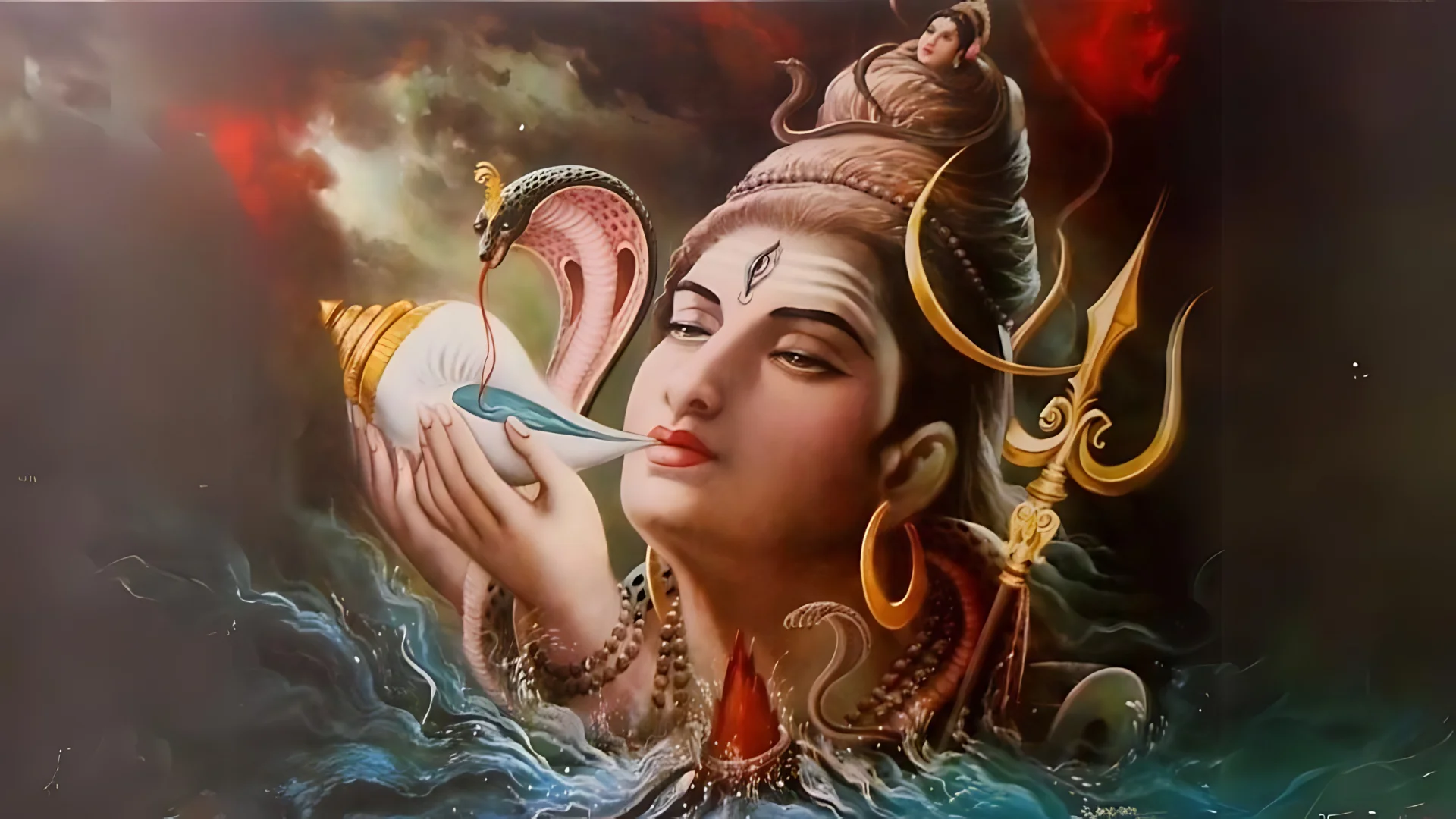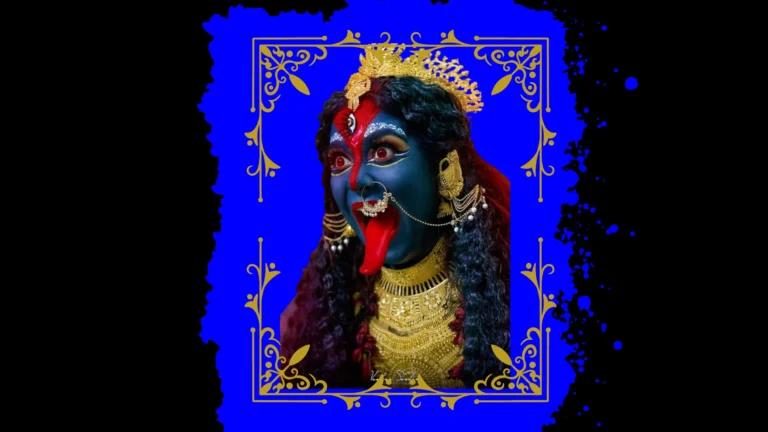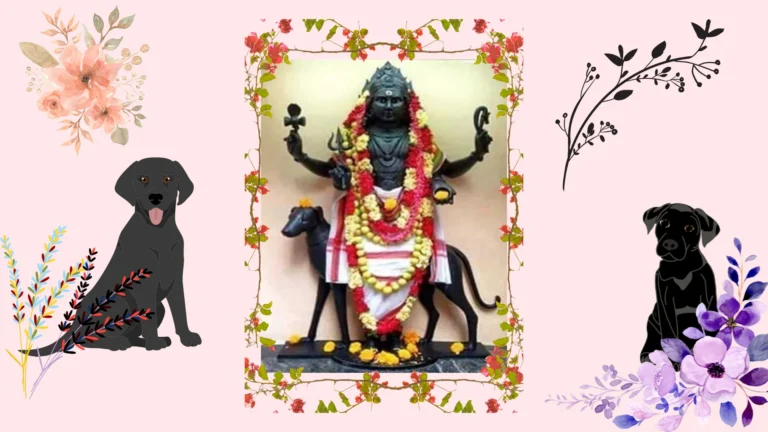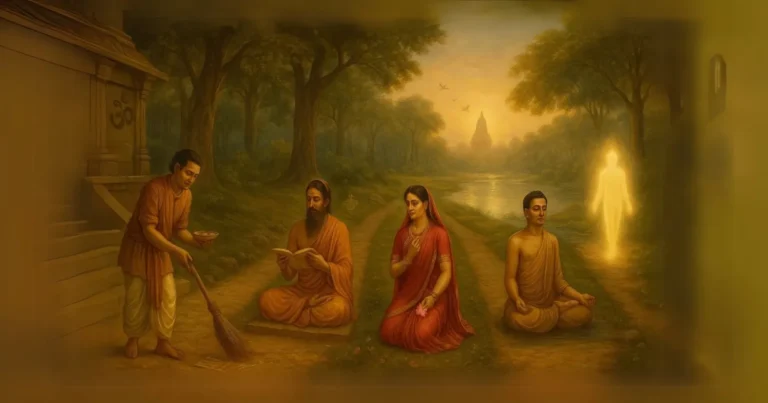Please Like the Blog and Share it for Maximum Reach
Table of Contents
Lord Bholenath is the Expert in Rama Nama
Tulsidas Goswami has especially used the word ‘Neeko’ for Lord Bholenath-
नाम प्रभाउ जान सिव ‘नीको’ |
nāma prabhāu jāna siva ‘nīko’ |
Lord Bholenath knew the potency of the name like nobody else. In Lord Ganesha’s case, he circumambulated the name. Even if he had lost the contest, he had nothing to lose. Anyway, he was going to report late sitting on Mushakraj.
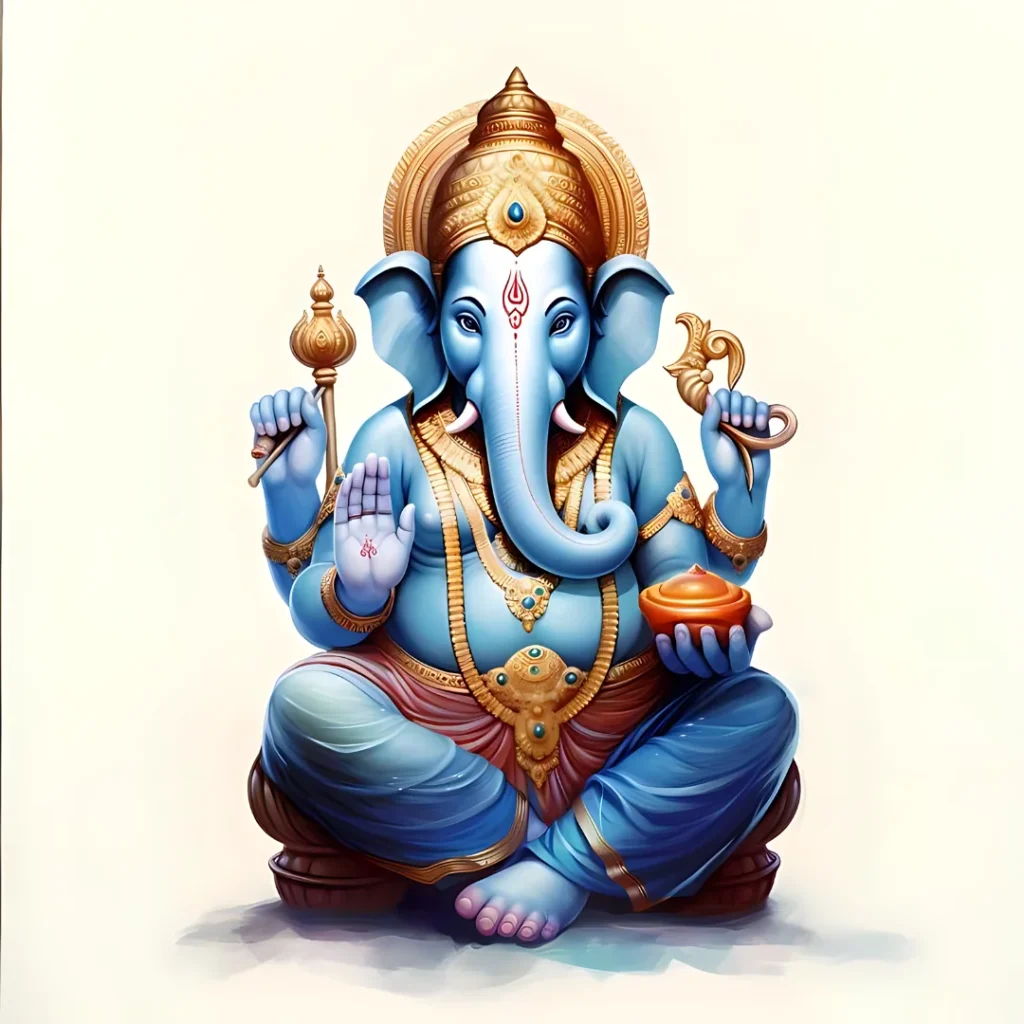
But what was Lord Bholenath’s test?
To highlight the glory of Rama Nama, Goswamiji says-
कालकूट फलु दीन्ह अमी को ||
kālakūṭa phalu dīnha amī ko
When poison emerged from the ocean, Lord Vishnu told Lord Bholenath to drink the poison.
Sage Narada curses Lord Vishnu

When Sage Narada was bitterly upset with Bhagavan, he rebuked Him with many words. He said-“When Goddess Lakshmi emerged from the ocean, you made her your wife. When the Kaustubha gem emerged, you wore it for yourself. But, when poison appeared, you sent it to Lord Bholenath, how selfish you are! How treacherous you are!!”
असुर सुरा बिष संकरहिं आपु रमा मनी चारु |
स्वारथ साधक कुटिल तुम्ह सदा कपट व्यवहारु ||
asura surā biṣa saṃkarahiṃ āpu ramā manī cāru |
svāratha sādhaka kuṭila tumha sadā kapaṭa vyavahāru ||
Think. Why did Bhagavan do this? We feel Bhagavan had been unjust. However, there is a reason behind his ways. Earlier when the churning happened, Lord Bholenath had gulped all the nectar by himself. So he better drink the poison too.
It is said that earlier when the ocean of Vedas was churned, the nectar of Ram Nam emerged from it.-
ब्रह्माम्भोधिसमुद्भवं कलिमलप्रध्वंसनं चाव्ययं |
brahmāmbhodhisamudbhavaṃ kalimalapradhvaṃsanaṃ cāvyayaṃ |
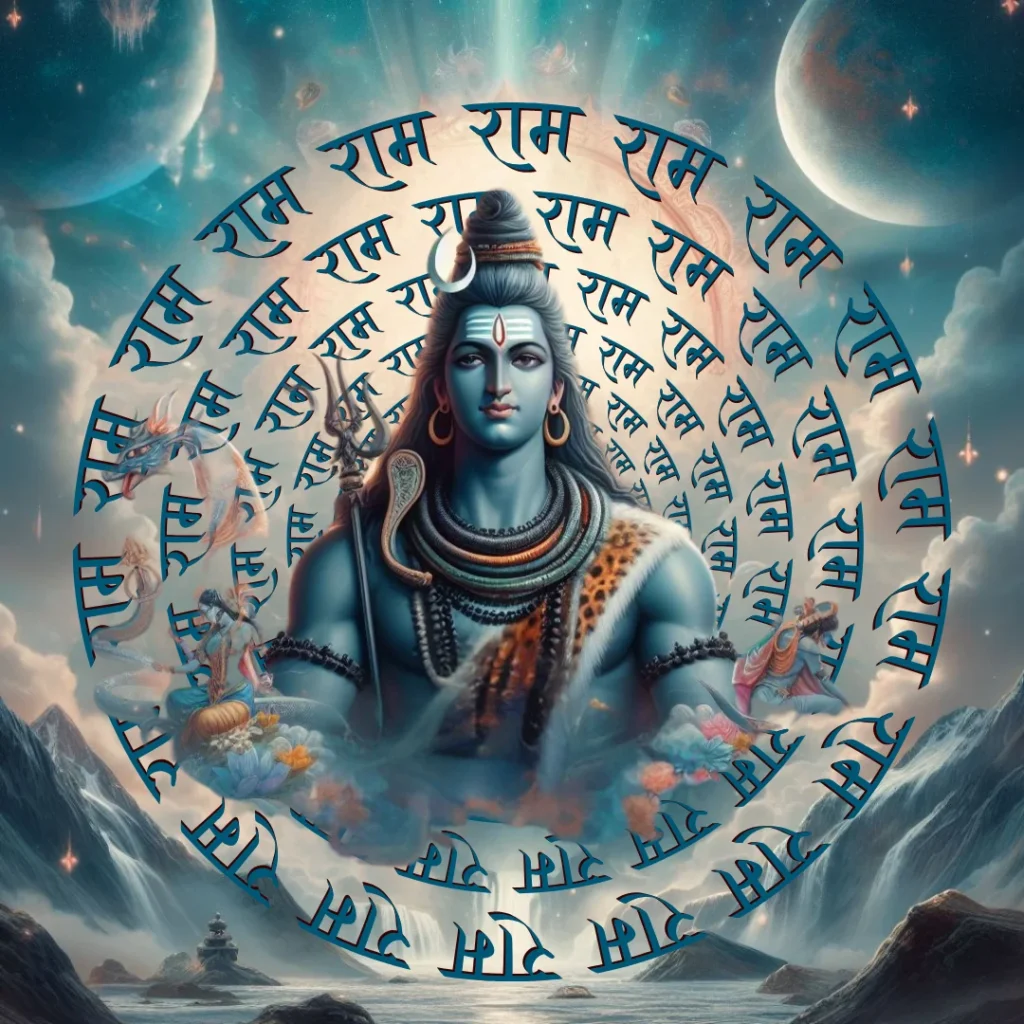
Sri Rama Nama is the sweetest extract of the vedas. When everybody saw two simple alphabets as the Vedic extract, they ignored it. There are so many other Mantras available in the scriptures. Two alphabets ‘Ra’ and ‘Ma’ appear to be too less. Lord Bholenath was happy to see nobody’s mind go towards the name.
7/8 Questions from Sanatana Dharma
The scores generated in this Quiz may or may not be absolute. There may be right or wrong answers to each Question. A percentage towards 100 indicates that you are more aligned to the overall subject matter.
People dislike Short Mantras
Those who believe in long mantras, find Ram Nama to be very short. They feel how it is going to benefit. How can such short syllables have infinite power. It is unimaginable and irrational, they feel.
Many people visit sadhus to find a solution for their miseries. If the sadhu tells them to perform Yoga sadhana, they will immediately term it to be “difficult”. If the sadhu says, simply chant the Ram Naam, then too they have a problem.
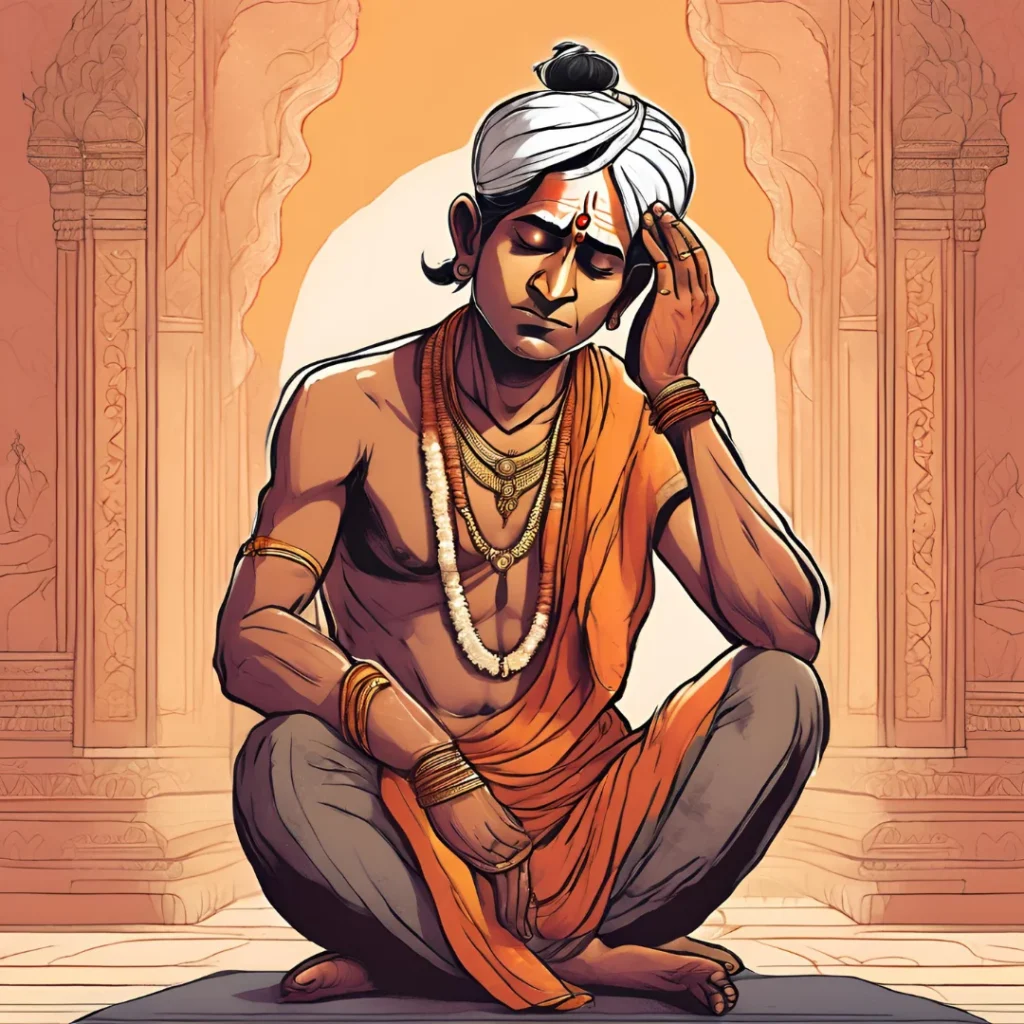
They will say, what new thing have you said now? We already know it. Looking at the shortness of the name, many people pay no heed to it. However Lord Bholenath knew that though the ocean is infinitely vast, the nectar must finally arrive in a small pitcher. Similarly, Ram Nama is the extract of the vedas.
Which is why Goswamiji said-
ब्रह्माम्भोधिसमुद्भवं कलिमलप्रध्वंसनं चाव्ययं,
श्रीमच्छम्भुमुखेन्दुसुन्दरवरे संशोभितं सर्वदा |
संसारामायभेषजं सुखकरं श्रीजनकीजीवनम ,
धन्यास्ते कृतिनः पिबन्ति सततं श्रीरामनामामृतं ||
brahmāmbhodhisamudbhavaṃ kalimalapradhvaṃsanaṃ cāvyayaṃ,
śrīmacchambhumukhendusundaravare saṃśobhitaṃ sarvadā |
saṃsārāmāyabheṣajaṃ sukhakaraṃ śrījanakījīvanama ,
dhanyāste kṛtinaḥ pibanti satataṃ śrīrāmanāmāmṛtaṃ ||
Lord Vishnu justifies his decision
Lord Vishnu said “I have not been unjust. Lord Bholenath will certainly understand why I have sent him this parcel.”
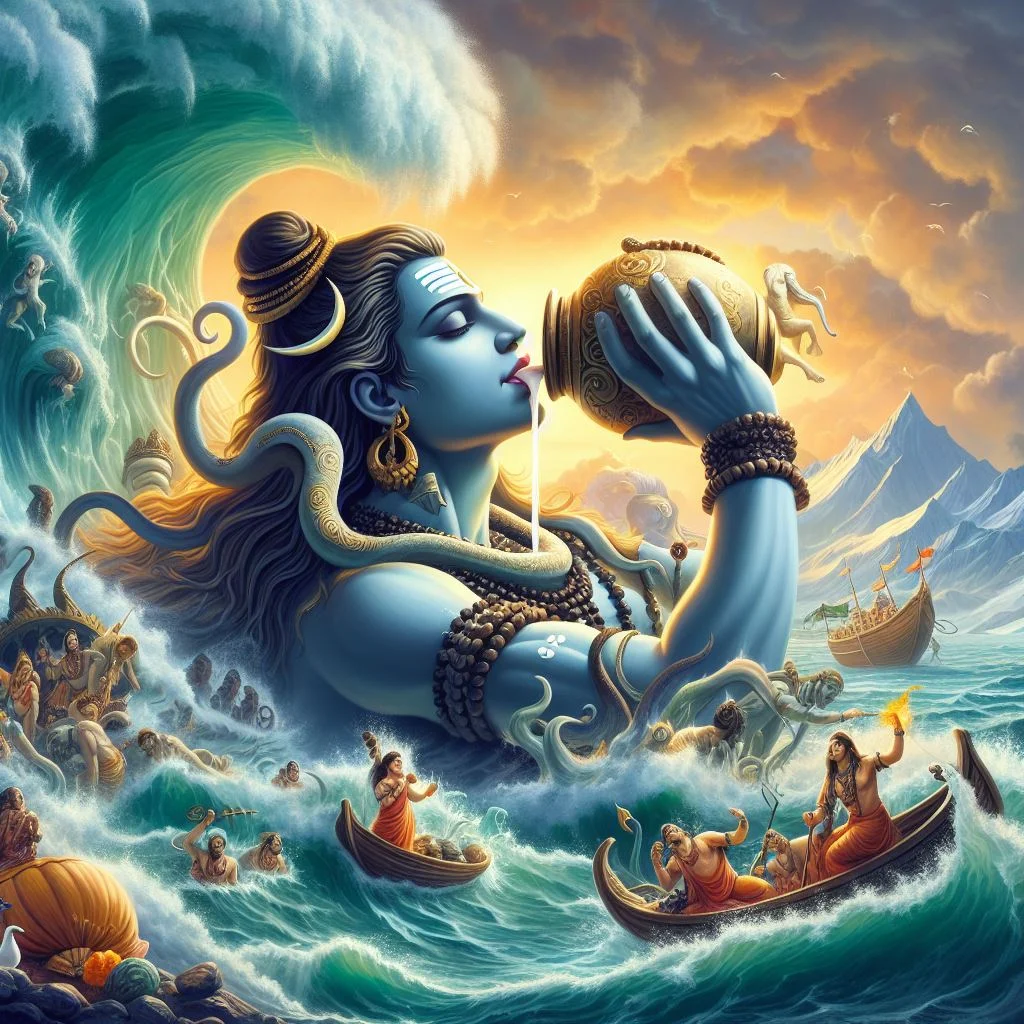
When the Devas turned to Lord Bholenath for help. Lord Bholenath was thrilled. This is the time to test the greatness of Rama Nam over the deadliest poison called Kalkuta. Which weapon is more powerful? When the name ‘Rama’ got itself attached to ‘Vish’ (poison), it became ‘Vishrama’ (rest). But when the same name Rama gets separated from ‘Vishrama’ it becomes poison again.
Through this episode, Lord Bholenath’s intense faith towards the holy name became clear. The power of Ram Nam deified death itself. Lord Bholenath was immortal even after consuming the venom.
Shiva Ganas attend a marriage
During Lord Bholenath’s marriage procession, he took all his ganas or ghostly creatures as his associates. All the Devas immediately warned him. “At least during your marriage procession, pay heed to auspicious and inauspicious omen. Your ganas are all inauspicious.
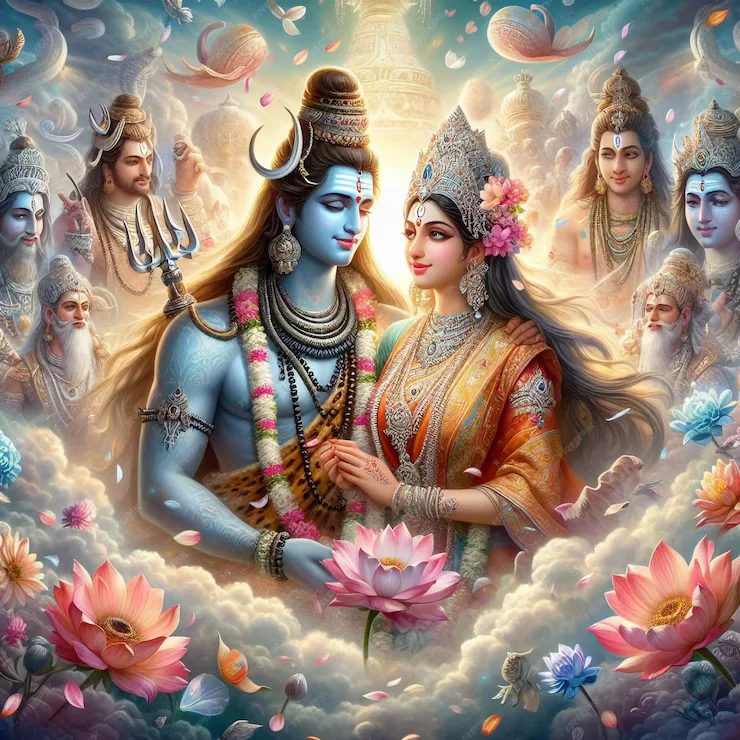
कोउ मुख ही बिपुल मुख काहू |
kou mukha hī bipula mukha kāhū |
Will you continue you procession with these undesirable-omens?” Lord Bholenath said- “According to me, inauspicious is more desirable than auspicious. During auspicious times we lose ourselves in good happenings. We see the auspicious fire burning, Brahmins chanting, distribution of dairy items, etc. But during inauspicious times, the first thing that comes unfailingly to our mouth is the name ‘Rama’.
जिन्ह कर नामु लेत जग माहीं |
सकल अमंगल मूल नसाहीं ||
करतल होहिं पदारथ चारी |
तेइ सिय रामु कहेउ कामारी ||
jinha kara nāmu leta jaga māhīṃ |
sakala amaṃgala mūla nasāhīṃ ||
karatala hohiṃ padāratha cārī |
tei siya rāmu kaheu kāmārī ||
“I have my Lord’s name on my tongue. How can anything inauspicious harm me? Only good shall happen.” Lord Bholenath transforms poison into nectar. He is the very personification of faith or Bhakti.
भवानी शंकरौ वन्दे श्रद्धाविश्वासरूपिणौ |
याभ्याम् विना न पश्यन्ति सिद्धाः स्वान्तः स्थमीश्वरम् ||
bhavānī śaṃkarau vande śraddhāviśvāsarūpiṇau |
yābhyām vinā na paśyanti siddhāḥ svāntaḥ sthamīśvaram ||
Comparison between Lord Ganesh and Lord Bholenath’s approach
Lord Ganesha is the lord of Viveka or discrimination. He understood the cosmic principle behind the name. But Faith is even greater. Lord Bholenath’s faith on the name is so intense that even death stands defeated. This is the side of Lord Bholenath.
So taking Lord Bholenath, Lord Ganesha and Sage Valimiki’s example, even the sincere, the wise and utterly surrendered can chant the name.
Sage Valimiki’s approach
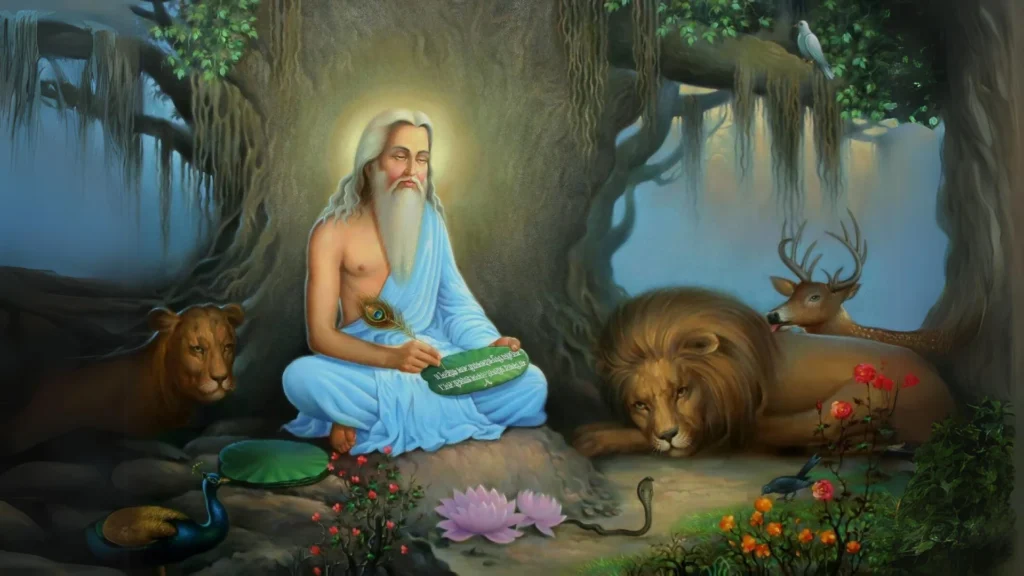
Sage Valmiki had many vices in him. He was told to chant the name in the reverse order because of his inability to chant the name. Even spelling the name in the reverse order can purify one’s heart.
Kindergarten and graduation level in chanting
Sant Kabir says-
माला तो कर में फिरै, जीभ फिरै मुख माहिं |
मनवा तो दस दिसि फिरै यह तो सुमिरन नाहीं ||
mālā to kara meṃ phirai, jībha phirai mukha māhiṃ |
manavā to dasa disi phirai yaha to sumirana nāhīṃ ||
What is the use of chanting if your fingers move the beads, tongue spells the name but your mind wanders everywhere?
However, Tulsidasji says the complete opposite thing-
भायँ कुभायँ अनख आलसहूँ |
नाम जपत मंगल दिसि दसहूँ ||
bhāya kubhāya anakha ālasahū |
nāma japata maṃgala disi dasahū ||
“You can chant with love, without love, with anger or slumber. Nama will do wonders anyway.” Both Kabir and Tulsidas ji are great saints. Who says the correct thing? Both are right in their way.
Kabirdasji’s truth follows the rules of grammar. If you don’t know how to write and pronounce words correctly, you will certainly fail in your exam. To pass, you must learn the right pronunciation and formation of sentences.
Tulsidasji’s mood while chanting
Suppose a grammar teacher tells you the meaning of the word “Ma”. A little baby knows nothing of this sort. Yet when he calls “Ma”, his mother comes running to him and lift him on her lap.
Kabirdasji is a university student. He warns you to chant religiously, with one-pointed attention. But Tulsidasji says “I did not fit into that category.” A child stammers when he speaks, he speaks unclearly, yet his mother comes running to him on hearing his call.
Somebody asked Tulsidasji Goswamiji- “Some say Ram naam is the supreme, fundamental principle, some say it is the divine name of Bhagavan. What is your outlook?” Goswami gave an exquisite reply in the Vinay Patrika-
मेरे तो माय-बाप दोउ आखर, हौं सिसु-अरनि अरो |
mere to māya-bāpa dou ākhara, hauṃ sisu-arani aro |
“For me, Rama Nama is neither a mantra nor an object of contemplation. ‘Ra’ and ‘Ma’ are simply my parents. I am their child who keeps calling out to them.” The truth understood by a child is of the supreme order.

A child sits in dirt, yet, when he calls his mother, his call is so heart-wrenching that his mother leaving all tasks aside solely attends to him.
If the mother reaches late, the child may get angry. Still, his mother loves him. Valmikiji’s story gives us this teaching. Even if we are incapable of pronouncing Bhagavan’s name, Bhagavan understands our mood and attends to our call.
Both Tulsidasji and Kabirdasji underline the same principle and that is the mood of surrender, whether it is simply chanting the Name Rama or keeping the mind on Sri Rama. In Tulsidasji’s case, it is the utter innocence in chanting Rama Nama.
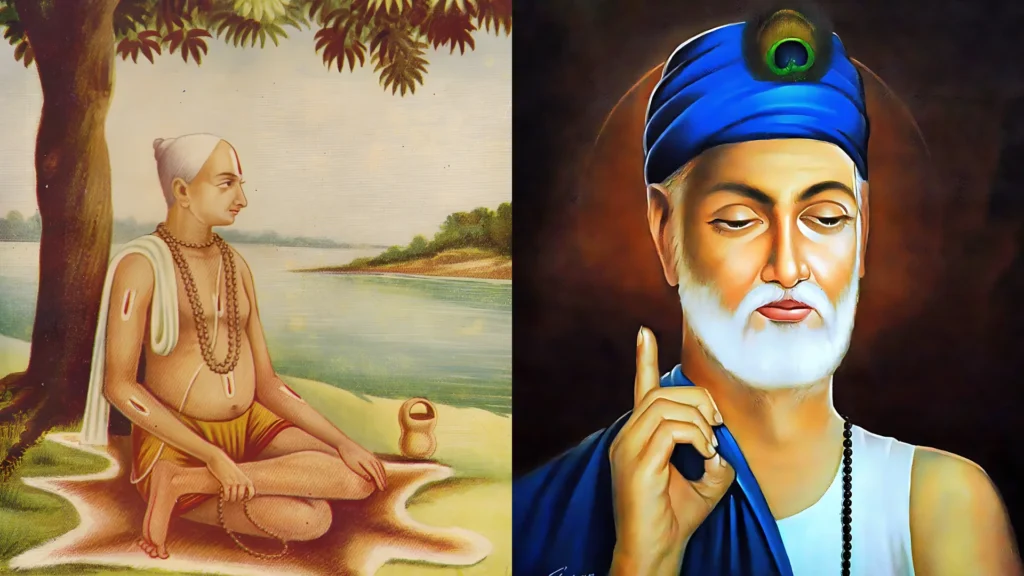
In Kabirdasji’s case, it is a more mature outlook of knowing that Rama alone can save you. So, one cannot discount the mood of Sharanagati or surrender whether done out of innocence or out of maturity.
But people who chant with any of these moods, cannot attain the help of Sri Rama because their intention is not genuine. Mother happily lets the child play with toys, if the child just calls out “Ma”, out of disinterested habit while being more interested in the toys of this world.
Is it fine if our chanting is unclear?
Shri Udia Baba keeps recounting this episode.
A devotee once accepted initiation. He was less educated and so could not pronounce words correctly. He mugged-up the wrong mantra and started chanting it incorrectly.
It was a Devi mantra. Devi appeared before him and slapped him. She said- “At least chant the mantra correctly! What wrong mantra are you chanting?” The Bhakta immediately grabbed Devi Ma’s feet and said- “Ma, I will listen to whatever you say, but you are telling me to chant the mantra correctly, that I cannot do.” Devi asked “Why?” The devotee said- “The effect of this incorrect mantra has brought you here. I don’t’ want a better mantra than this. There are many who chant the mantra correctly.”
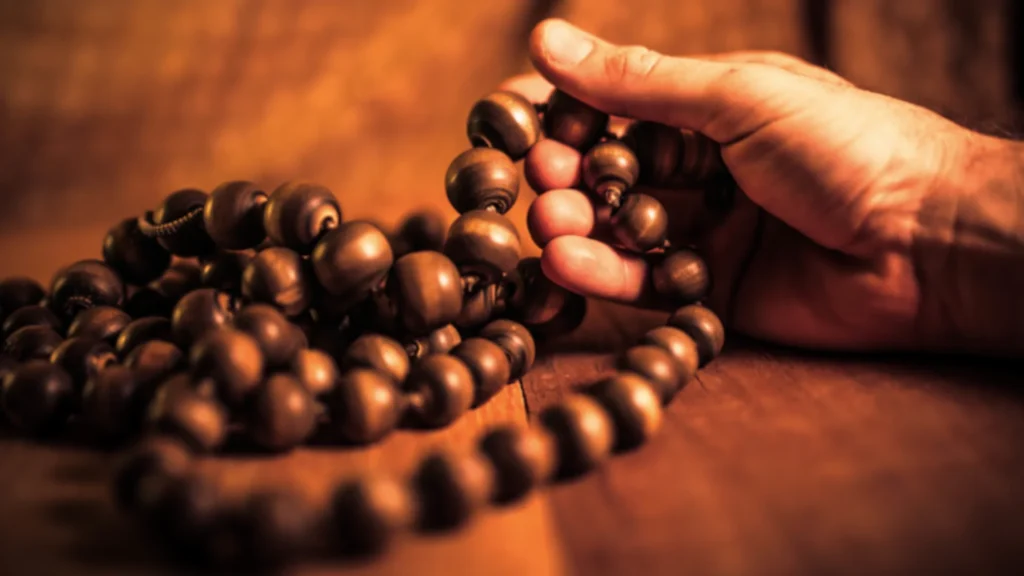
Which means Nam-sadhana is so unique that however one chants the Nama one shall always benefit, if the intention is to get the Lord’s attention without ulterior motives. You can chant it from a jnani’s perspective, a bhakta’s perspective or like a sheer innocent child. By remembering the Ram Nama, a surge of divine emotion fills our hearts. The glories of Nama are infinite.
जासु नाम भव भेषज हरन घोर त्रय सूल |
सो कृपाल मोहि तो पर सदा रहउ अनुकूल ||
jāsu nāma bhava bheṣaja harana ghora traya sūla |
so kṛpāla mohi to para sadā raha{}u anukūla ||
|| Boliye Siyavar Ramachandra ki Jay ||
Please Like the Blog and Share it for Maximum Reach

